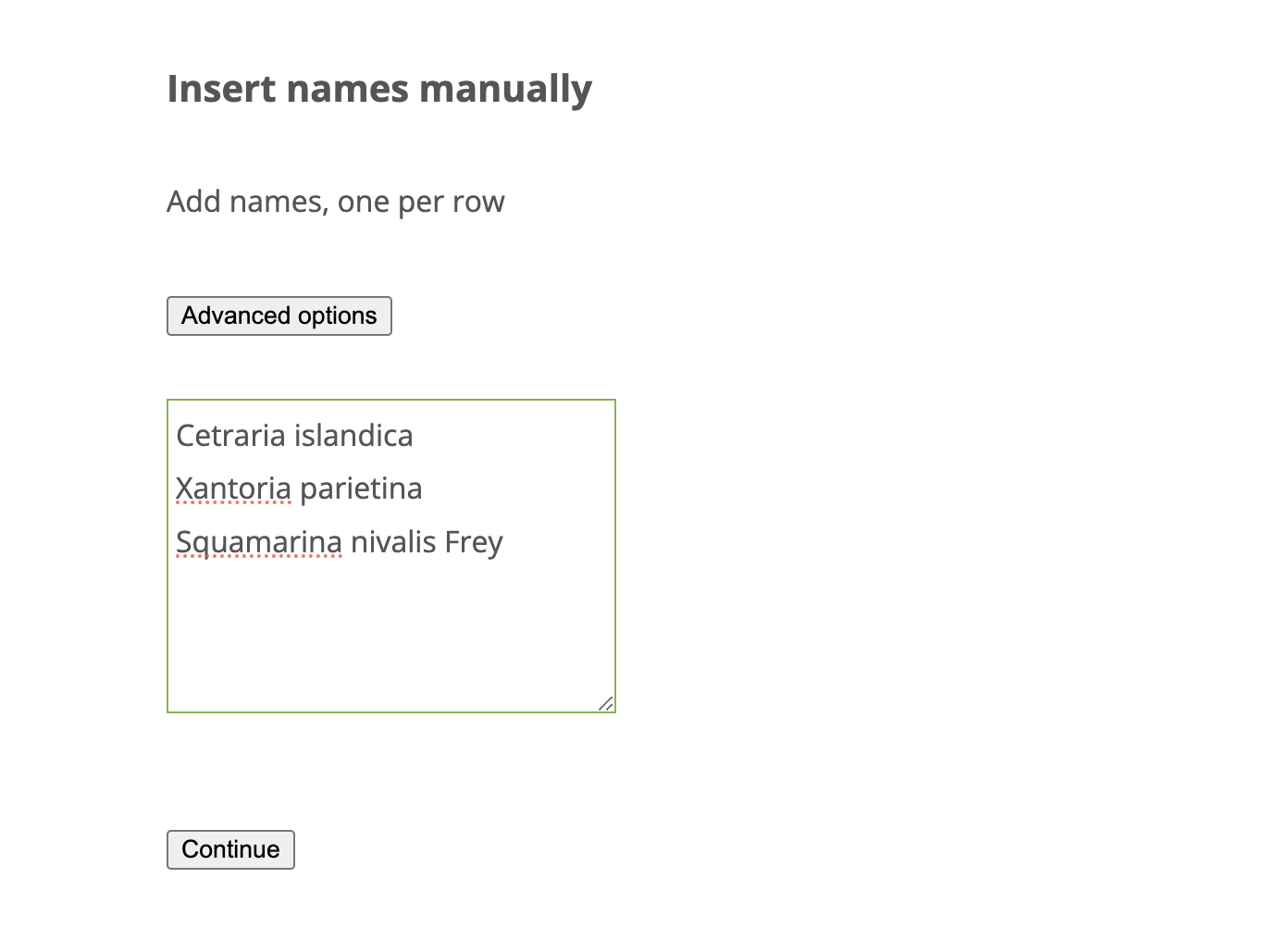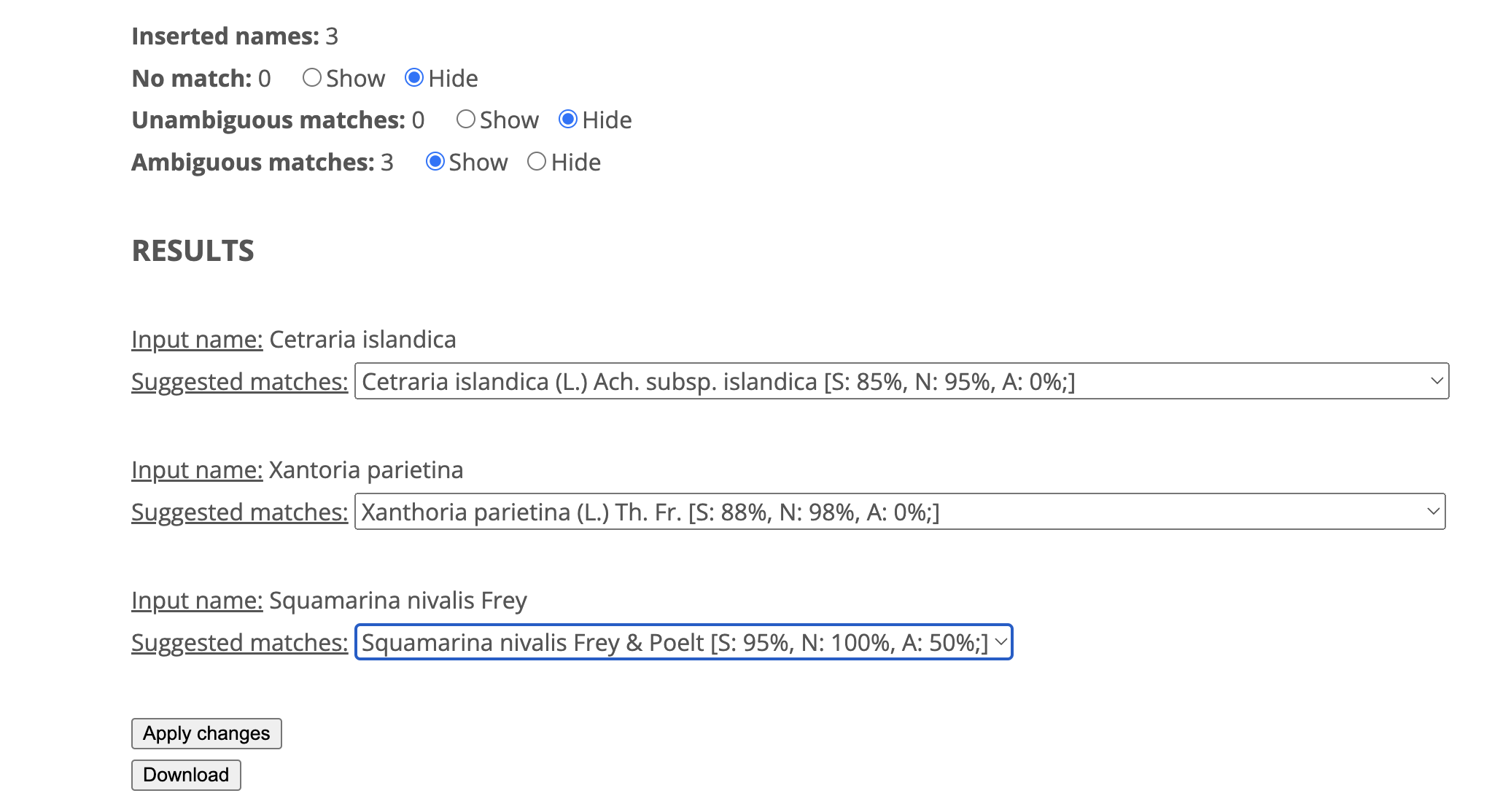HOW TO MATCH
How to use the tool
This tool allows you to align a list of names with those accepted in ITALIC. The process involves the input of a list of names either by uploading a file in CSV format, or by manual insertion.
The process begins with the user registration to the system (Fig. 1). Registered users can keep their own lists (up to a maximum of 3 per user), avoiding having to complete the alignment process for all names with ambiguous alignment at once (see below).

Registered users can access various functions (Fig. 2): a) access the list of already loaded files present in their workspace; b) access to the upload of new files; c) access to the interface for manual entry of names.

The first function allows you to access your user space (Fig. 3), where the files already loaded into the system are listed.

The files can be deleted, or displayed (Fig. 4), highlighting the main data (number of names in the file, and how many names have been aligned with certainty, with ambiguity, or not aligned). By selecting "view" or "hide" it is possible to view only the group(s) of interest

Here it is possible to align the names for which a unique result has not been found. The system shows a drop-down menu (Fig. 5), from which it is possible to choose one of the names that the alignment algorithm has selected. An alignment score ranging from 0 to 100% is also provided for each name).
BE CAREFUL: when strings are too long, they are truncated and end with tre dots. To view the complete string, put the mouse pointer on it, and the full text will be shown in a pop-up.

At the end of the page there are two buttons, one to apply the changes, one to download everything in a CSV file (Fig. 6). Obviously the CSV file will only contain the saved changes, so you need to do this before downloading.

CSV files contain data organized in 4 columns, reporting, for each name: the accepted name, the possible synonym, whether the match was made with a synonym and not with an accepted name, and the alignment score (from 0 to 100%).
An example of a CSV file downloaded from Floritaly after processing with the alignment tool is shown in figure 7.

Manual entry of names is done using the form in Fig. 8. The user can enter a series of names, one per line. Once the entry is complete, just click on the "continue" button to perform the alignment.

The result is similar to that seen previously (Fig. 9). However, in this case no file is saved in the user space, and the result must be downloaded in CSV format. When one leaves this interface, the operation should be repeated from the beginning.
